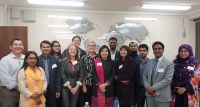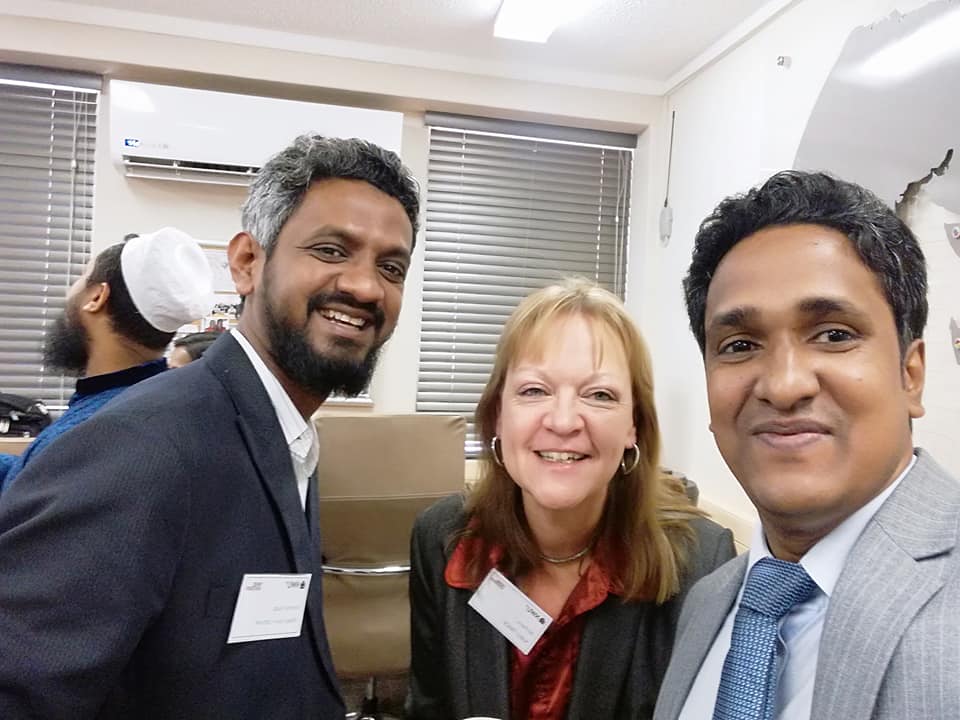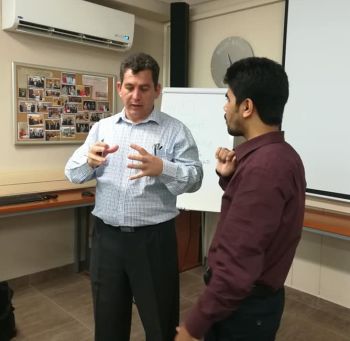 NEWSLETTER ISSUE #6/2018
NEWSLETTER ISSUE #6/2018
|
Exciting collaboration potential between TRADE and the University of Dhaka in Bangladesh
A recent highlight was a visit to TRADE by 10 academics from the International Business Department at the University of Dhaka in Bangladesh. The purpose of the visit was to explore the prospects for teaching and research collaboration and to learn more about the TRADE-DSM® and how it might help Bangladesh to diversify its export base. In 2017, TRADE team members Dr Adelia Jansen van Rensburg and Ali Parry visited the University of Dhaka as part of a multi-nation research study on plurilateral trade agreements in the developing world. The natural affinity that Adelia and Ali found with their new friends at the University of Dhaka prompted the latter’s recent visit to TRADE – which was also their first visit to South Africa. Although geographically and culturally distant from each other, Bangladesh and South Africa nevertheless share many of the same challenges. These include a significant developmental deficit in many parts of the country, a large population and fast-expanding cities which are stretching existing resources, and a limited range of dominant exports. In Bangladesh’s case, ready-made garments (RMG) make up the bulk of the country’s exports but with growing competition from countries such as China and Vietnam and changing trade dynamics in different parts of the world, diversification has become a critical priority. During the three-day programme, various members of TRADE and the University of Dhaka delegation shared information on their respective research activities and explored possibilities for further collaboration, including writing joint articles and organising faculty and postgraduate student exchanges. Like South Africa, Bangladesh is under pressure to diversify and add value to its export basket in order to stimulate more segments of the economy and create a stronger platform for regional and international trade. One of the days in the programme was devoted to the TRADE-DSM® in which the University of Dhaka delegates had indicated a particularly strong interest. During the discussions, it became evident that the application of the model to Bangladesh could be very valuable to the country as it would reveal new export opportunities to complement those that the government and private sector were already considering, using more conventional approaches to market selection. One of the distinctive features of the TRADE-DSM® is its ability to pinpoint ‘hidden’ and untapped export potential – that is, combinations of markets and products that have not been given serious or any consideration (generally due to a lack of readily available information) but nevertheless have great economic potential. Related news International Trade and TRADE-DSM® User Group Conference |
|
Archive newsletters
|





